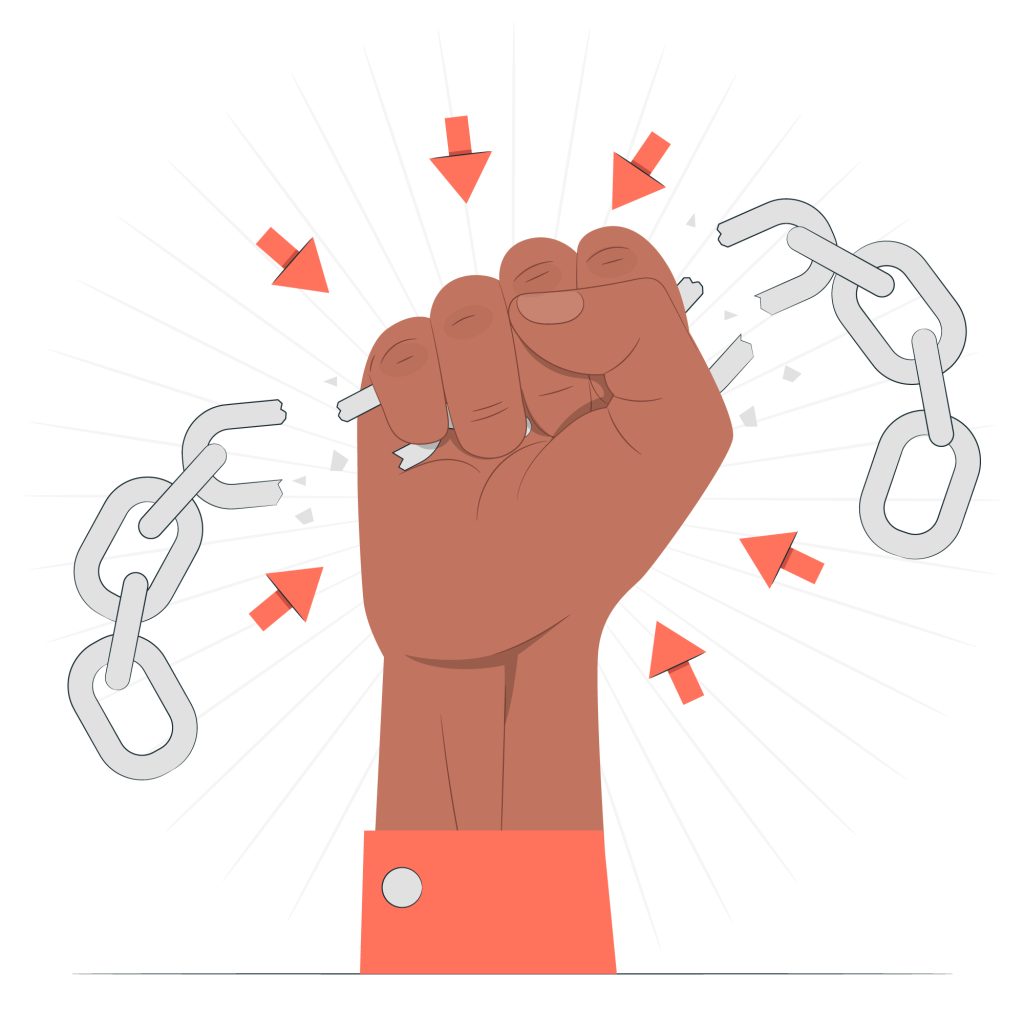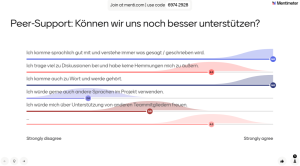6. Summary

This learning module investigated different theoretical and practical approaches for dealing with controversiality in the context of virtual exchange projects. Based on experiences and research from specific implementations of multilateral VE projects between participants in Germany and Israel in 2021 and 2023, the module focused on the Israeli-Palestinian conflict as a specific example of a highly contentious issue with global ramifications. Of course, when consulting relevant frameworks that seek to offer guidance for the world we hope to inhabit (such as the UN SDGs), numerous other examples for tough topics can be found; ranging from questions of responsible consumption and production to adequate responses to the climate crisis.
As VE projects inherently seek to provide opportunities for co-creation of knowledge and collaboration across lingua-cultural differences, they come with inherent degrees of volatility, uncertainty, complexity, and ambiguity. This module has shown you a small selection of ways for fostering tolerance of ambiguity, introducing a multiplicity of voices and perspectives to your classroom materials, and to craft challenging yet respectful discussion spaces.
8. Activity:
Take another look at your initial thoughts on how ready you feel to face unforeseen disputes and controversial debates in a VE project. Having completed the learning module, ask yourself if you feel better equipped for such events.
References
Adichie, C. N. (2009): The danger of a single story. TED Talk. Retrieved 19 January, 2025, from https://www.ted.com/talks/chimamanda_ngozi_adichie_the_danger_of_a_single_story/transcript?geo=de
Arao, B., & Clemens, K. (2013): “From safe spaces to brave spaces: A new way to frame dialogue around diversity and social justice”. In L. M. Landreman (Ed.), The art of effective facilitation: Reflections for social justice educators (pp. 135–150). Stylus Publishing.
Barghouti, M. (2000): I saw Ramallah. Anchor Books.
Bundeszentrale für politische Bildung (bpb) (2012): Transformation and reorganisation 1969-1981. Retrieved 19 January, 2025, from https://www.bpb.de/die-bpb/ueber-uns/federal-agency-for-civic-education/148080/transformation-and-reorganisation-1969-1981/
Duckworth, S. (2020): Wheel of power/privilege [Infographic]. Flickr. Retrieved 19 January, 2025, from https://flic.kr/p/2jWxeGG
Ekin, S. (2023): Video-Mediated Lesson Planning Conversations of Pre-Service Language Teachers in a Transnational Virtual Exchange Project. Hacettepe Üniversitesi, Ankara. Retrieved 19 January, 2025, from https://openaccess.hacettepe.edu.tr/xmlui/bitstream/handle/11655/33835/Semih%20Ekin%20-%20PhD%20Dissertation.pdf?sequence=2
Frantzman, S. (2021) Why the Sheikh Jarrah dispute has captured international attention. The Jewish Chronicle. Retrieved 19 January, 2025, from https://www.thejc.com/comment/analysis/why-the-sheikh-jarrah-dispute-has-captured-international-attention-1.516489
Freitag-Hild, B. (2018): “Teaching culture – Intercultural competence, transcultural learning, global education”. In C. Surkamp & B. Viebrock (Eds.), Teaching English as a foreign language: An introduction. J. B. Metzler: 159-175.
Groves, J. (2024): Rethinking Holocaust memory courses and curricula in German studies: The Holocaust-Nakba nexus. The DDGC Collective. Retrieved 19 January, 2025, from https://www.ddgccollective.org/ddgc-blog/rethinking-holocaust-memory-courses-and-curricula-in-german-studies-the-holocaust-nakba-nexus
Hadar, L. L., Ergas, O., Alpert, B. & Ariav, T. (2020): „Rethinking teacher education in a VUCA world: student teachers’ social-emotional competencies during the Covid-19 crisis. In: European Journal of Teacher Education 43(4): 573-586.
Hallet, W. (2002): Fremdsprachenunterricht als Spiel der Texte und Kulturen. Intertextualität als Paradigma einer kulturwissenschaftlichen Didaktik. Trier.
Hauck, M. (2019): Virtual exchange for (critical) digital literacy skills development. European Journal of Language Policy, 11(2), 187-210.
Hauck, M. (2023): From Virtual Exchange to Critical Virtual Exchange and Critical Internationalization at Home. The Global Impact Exchange, (2023), 9-12.
Herman, J. L., Stevens, M. J., Bird, A., Mendenhall, M., & Oddou, G. (2010): The tolerance for ambiguity scale: Towards a more refined measure for international management research. International Journal of Intercultural Relations, 34(1), 58-65.
Kearney, D. B. (2022): Universal Design for Learning (UDL) for Inclusivity, Diversity, Equity, and Accessibility (IDEA). Retrieved 19 January, 2025, from https://ecampusontario.pressbooks.pub/universaldesign/chapter/positionality-intersectionality/
Krengel, F. & Paasche, D. (2022): „Contested spaces. Zukunftsvisionen für die eigene Nachbarschaft über einen virtuellen Austausch aushandeln“ In: Der fremdsprachliche Unterricht Englisch 56, 177: 40-45.
Krengel, F. (2021). “Glocal Education” Through Virtual Exchange? Training Pre-Service EFL Teachers to Connect Their Local Classrooms to the World and Back. Global Education Review, 8 (2-3), 138-153. Retrieved 19 January, 2025, from https://ger.mercy.edu/index.php/ger/issue/view/48
Krengel, F. (2025). “Ambiguitätstoleranz“ In: Surkamp, C. (Ed.): Metzler Lexikon Fremdsprachendidaktik. Ansätze – Methoden – Grundbegriffe. 3rd ed., Stuttgart: J.B. Metzler: 7-8.
Müller-Hartmann, A. (1999): Auf der Suche nach dem „dritten Ort “: Das Eigene und das Fremde im virtuellen Austausch über literarische Texte. Interkultureller Fremdsprachenunterricht, 160-182.
O’Dowd, R. (2019). A transnational model of virtual exchange for global citizenship education. Retrieved 19 January, 2025, from https://www.academia.edu/38719816/Atransnationalmodelofvirtualexchangeforglobalcitizenship_education
O’Dowd, R., & Ware, P. (2009). Critical issues in telecollaborative task design. Computer Assisted Language Learning, 22(2), 173-188.
Öztürk, S. (2022): Intercultural Communicative Competence and Global Citizenship Education of ELT Student Teachers Through Telecollaboration. Gazi University.
All illustrations on this page by @storyset (https://www.freepik.com/author/stories)
This work © 2025 by Fabian Krengel is licensed under CC BY-NC-ND 4.0
